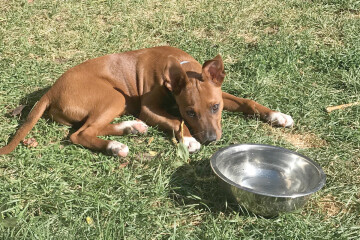Bozeman Strong with Mayor Chris Mehl
In January of this year, Bozeman heralded a new mayor, Chris Mehl, but if you are a regular citizen of Bozeman (like me), you very well may have missed the pomp and circumstance of the induction. Ok, there wasn’t a parade or anything to welcome Chris to the title he prepared for two years prior as Deputy Mayor; you didn’t miss it. Bozeman’s city government is just as unique as our downtown. When a mayor of Bozeman is elected, they first serve as Deputy Mayor/City Commissioner for two years before serving a two-year term as mayor. The system is unlike many other cities; it gives the elected official time to get up to speed and gives the training and stability required to do the job while diluting power and not allowing the same individual to have the role for an extended period of time.
I recently reached out to Chris to talk about the state of the COVID crisis and the toll it is taking on our town and local businesses, he graciously shared his thoughts on local government, public comment, the City’s goals, and public safety.
The City of Bozeman’s website states that its Mission is to keep Bozeman the most livable place through public safety and community partnerships.
Angie Ripple: What should the ultimate goal of the city be?
Chris Mehl: Ultimate is a long time, but Bozeman is a pretty great place to live, and that is because of the work of a lot of people that are here now, but also our ancestors. In one way, my highest goal as an elected official is to be a good ancestor, to leave something that is in a good place for the next generation, or the next elected official, or the next family.
How do we grow and still have what we like about Bozeman? Back to the partnership part of that Bozeman slogan, how do we work with Belgrade and the county? I’ve spent a lot of time over the past two years working on this thing called the Triangle Plan for growth in those areas because the more we cooperate, frankly, the better the quality of life will be: how long is your commute, can your kids walk to school safely, but also how expensive it is. It’s expensive [infrastructure] so you want to get that right the first time, but you also don’t want to over build either, so that planning is essential.
AR: And in the current COVID situation, what is the obligation of our local government in taking care of the well being of its citizens?
CM: Oh high! You could argue in some ways that cities organized, or government organized, for two real reasons: The first one is public safety; hey, we’re going to create a city and dig a moat, or build a wall just for direct safety from marauders or other things, and you also organize for commerce. We get together and we have arts, we have business, we make widgets here, and so on and it’s a great thing. In Montana with COVID, we have a board of health in every county and every city appoints some people to the board. I-Ho Pomeroy is our liaison to that, Joe Skinner is the liaison from the county, there are a bunch of really smart MSU people on the board of health thank goodness, and they make specific policies but we prod them, we appoint them, we work with Matt Kelley, the police department, and businesses.
One example would be when Phase 2 started, the governor said we are going to start reopening, we worked with the Downtown Business Association and the Chamber to have safe reopening kits, disinfectant, disposable masks that they could give to customers, signage and things like that. So how do we make sure that we are partnering, part of the Bozeman slogan? [With partnerships] we reach more people, which is the goal after all.
Chris understands that local businesses are going through a painful time right now. That business plans do not thrive on instability, but from certainty, and certainty is at a minimum this year. I pointed out that many of our advertising partners have had to put their marketing on hold since April due to the initial stay at home order from Governor Bullock, several of them have not reopened at all, another is on a slow track to reopen having to completely reinvent systems and safety protocols and so forth. The leaders of these organizations and owners of these businesses are working hard to find a new normal but they are stressed out and are being asked to rework nearly everything including their budgets. I asked the mayor what he would say to a business owner contemplating whether or not their business can survive? And/or what can we do to help them?
CM: Buy Local. Every Tuesday, I buy local. A lot more than that, but I just make a point of doing that on Tuesdays and share it on social media and say, “hey, buy local.” It could be the hardware store, it could be food, it doesn’t really matter, but not Amazon, buy local. Leading by example, but also knowing that our job traditionally as a city is to build the infrastructure; we build the table and your creativity and hard work is what makes it work, or not. The City needs to be creative and flexible, but not nearly like the private sector is. They are the ones with the sweat equity, the creativity, they find out how to make a better widget and then how to sell it, and you compete with quality and cost. They need to know that the water is there for them, that the school district is good for them, that we are safe, and that means that it’s a good place to live which means it’s a good place to attract workers. So one of the things we’ve done during the crisis is to not turn off anyone’s water, sewer or garbage. It’s a public health issue, and it’s a compassion issue, but frankly it was also a business issue; you’re trying to make rent, we’re going to work with you. We have calls every Wednesday with the business community and the economic development office of the City, the SBA and the State to talk about trends. We helped do surveys. What are people saying they need? It’s hard, and it’s going to last.
One of the things I’ve learned in this day in age is to admit what you don’t know, which is tough, but to also be clear, and we are looking at least until the end of the year with some uncertainty. Knock wood that what we are doing now means our schools will start safely this fall and businesses will stay open, but it’s going to be in a different way. Business plans, for the most part, thrive on certainty and that’s just been eliminated, so it’s hard.
AR: The public comment meeting that never happened was eye opening for a lot of citizens and spurred the conversation we are having today.
CM: Public meetings are the bedrock of local government. It’s where we share ideas, it’s where we make decisions, they are open, they are transparent and frankly there is accountability. Those are all bedrock values of government, the consent of the governed, right? You may not like it, but you know that you got three minutes, everyone else got three minutes, the friend of the mayor didn’t get more time. We have to be respectful, no shouting down, no pressuring, no bullying.
I want to make clear there is a place for passion, especially with COVID. These are really significant, public health, life and death issues, economic health issues, that passion is appropriate, but not intimidation. We make better decisions if we discuss as a community and learn from each other as a community. Whether you’re in Bozeman or Whitefish or anywhere in between, you need that fairness, that openness and respectful part of it. I’ll go back to what I said before: It’s only by working together and making those decisions that we’re going to have a good outcome.
While public meetings allow us to be smart about this and hopefully be safer in making those decisions, there is a key element here that this is a long haul and we need to be kind to each other because it is going to take so long and there are still unknowns. If we can understand the sincerity of people who don’t want to wear masks or think it’s wrong to require it or vice versa why parents or others are concerned about masks, because we’re going to be in it for quite a while. We have to respect individual liberties but also know that if we make decisions together, fewer people are going to get harmed, whether it’s physical health harm, or the economic pain that is there, it’s really real, both are real, and I know we can do it, but quite frankly I don’t think we have a choice. I think we have to do it together because if we don’t, it’s really going to increase the pain and suffering we have. Local government is supposed to have a long-term relationship with it’s community and one of the ways you do that is through these meetings.
Chris Mehl left off with, “To me, the definition of citizenship is being engaged in your community and leaving it better than you found it. The things that are strong about Bozeman will be strong again in a year or two years.”
Stay strong Bozeman

